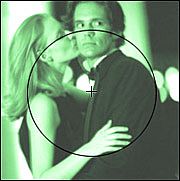
Marital misconduct cannot be factored in when dividing up assets or property in Pennsylvania, it can be used as a basis for an alimony decision. Marital misconduct is
rarely factored in during decisions about child support.
Alimony is authorized in Pennsylvania pursuant to 23 Pa.C.S. § 3701(a), which states that “where a divorce decree has been entered, the court may allow alimony, as it is deemed reasonable, to either party only if it finds that alimony is necessary.”
Bottom line is that alimony is completely discretionary. The court is to consider the 17 factors listed in 3701(b). Those factors are:
1. The relative earnings and earning capacities of the parties.
2. The ages and the physical, mental, and emotional conditions of the parties.
3. The sources of income of both parties, including, but not limited to, medical, retirement, insurance, or other benefits.
4. The expectancies and inheritances of the parties.
5. The duration of the marriage.
6. The contribution by one party to the education, training, or increased earning power of the other party.
7. The extent to which the earning power, expenses, or financial obligations of a party will be affected by reason of serving as the custodian of a minor child.
8. The standard of living of the parties established during the marriage.
9. The relative education of the parties and the time necessary to acquire sufficient education or training to enable the party seeking alimony to find appropriate employment.
10. The relative assets and liabilities of the parties.
11. The property brought to the marriage by either party.
12. The contribution of a spouse as homemaker.
13. The relative needs of the parties.
14. The marital misconduct of either of the parties during the marriage. The marital misconduct of either of the parties from the date of final separation shall not be considered by the court in its determinations relative to alimony, except that the court shall consider the abuse of one party by the other party. As used in this paragraph, “abuse” shall have the meaning given to it under section 6102.
15. The Federal, State, and local tax ramifications of the alimony award.
16. Whether the party seeking alimony lacks sufficient property, including, but not limited to, property distributed under Chapter 35, to provide for the party’s reasonable needs.
17. Whether the party seeking alimony is incapable of self-support through appropriate employment.
If alimony is awarded by the court, then pursuant to 23 Pa.C.S. § 3701(c) it can either be indefinite or set for a limited amount of time. It is very possible that alimony can be awarded for the remainder of either spouses’ life. Pursuant to 23 Pa.C.S. § 3701(d) the court will give its rationale for its decision.
LaBuda v. LaBuda , 349 Pa. Super. 524, 503 A.2d 971 (1987), a Pennsylvania appeals court held that consideration of the husband’s extramarital affair was not improper because it was limited solely to the issue of dissipation of the marital estate.
When you need an attorney to represent you with your legal matters, contact the Law Offices of Michael Kuldiner, P.C. in order to obtain the best results possible in each case. To arrange a consultation, please give us a call at (215) 942-2100







